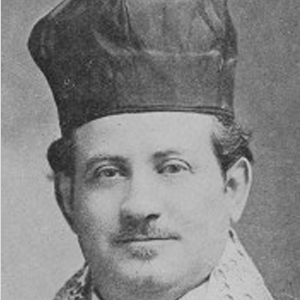Joshua Samuel Weisser (Pilderwasser) was born in 1888 in Novaya Ushitsa, Ukraine.
Joshua Samuel Weisser was renowned in cantorial circles in America as a cantor, teacher, cantorial critic, and composer of traditional liturgical settings as well as recitatives for student cantors. He was born in Novaya Ushitsa in the Ukraine, and he studied with a number of local cantors in the region. After accepting his first cantorial post in 1909, he became a pupil of Cantor Eliezer Mordecai Gerovitch (1844–1914), one of the most learned and classically oriented cantor-composers in the Russian Empire, whose own music in many ways exemplifies the eastern European modernized khor shul in its blend of cantorial tradition and Western musical sophistication.
Weisser immigrated to the United States in 1914, where he proceeded to serve several New York synagogues and to establish a coveted reputation as a teacher of cantorial art—at a time when formal cantorial schools had yet to be established. Among his students were many who went on to become internationally famous cantors, including the young Rueben Ticker, who—though he remained a devoted functioning cantor throughout his life—subsequently became known as Richard Tucker, one of the reigning tenors of the Metropolitan Opera, recognized throughout the world as one of the era’s leading operatic virtuosi. Weisser served as general secretary and, eventually, as president of the Jewish Ministers Cantors Association (Hazzanim Farband)—the principal cantorial association at that time in the greater New York area—and acquired the status of a “dean” of cantors in the region. His home is said to have been a regular meeting place for students, cantorial colleagues, choirmasters, and others who sought his counsel.
Weisser’s published recitatives and choral settings embrace virtually the entire liturgy of the annual cycle. He also notated Hassidic melodies, wrote original songs of Hassidic character, and composed Yiddish quasi-art songs—mostly in the style of elevated folksongs. He contributed articles about hazzanut and other aspects of Jewish music to various journals and periodicals, delivered papers at cantorial meetings, and, in a number of articles in Di khazonim velt[Di shul un di khazonim velt ]—an international cantorial newspaper published monthly in Warsaw from 1933 to 1939 but widely disseminated outside Poland—he reported on the state of cantorial art in America and on related professional matters and issues.


10 thoughts on “Kaminos”
Was Nicholas related to Alexander Saslavsky who married Celeste Izolee Todd?
Anyone have a contact email for Yair Klinger or link to score for Ha-Bayta?
wish to have homeland concert video played on the big screen throughout North America.
can organize here in Santa Barbara California.
contacts for this needed and any ideas or suggestions welcomed.
Nat farber is my great grandpa 😊
Are there any movies or photos of max kletter? His wife’s sister was my stepmother, so I’m interested in seeing them and sharing them with his wife’s daughter.
The article says Sheb recorded his last song just 4 days before he died, but does not tell us the name of it. I be curious what it was. I’d like to hear it.
Would anyone happen to know where I can find a copy of the sheet music for a Gil Aldema Choral (SATB) arrangement for Naomi Shemer’s “Sheleg Al Iri”. (Snow on my Village)?
Joseph Smith
Kol Ram Community Choir, NYC
שלום שמעון!
לא שכחתי אותך. עזבתי את ישראל בפברואר 1998 כדי להביא את בני האוטיסט לקבל את העזרה המקצועית שלא הייתה קיימת אז בישראל. זה סיפור מאוד עצוב וטרגי, אבל אני הייתי היחיד עם ביצים שהביא אותו והייתי הורה יחיד בשבילו במשך חמישה חודשים. הוא היה אז בן 9. כעת הוא בן 36 ומתפקד באופן עצמאי. נתתי לו הזדמנות לעתיד נורמלי. בטח, אבות כולם חרא, אומרים הפמינציות, אבל כולם צריכים לעבוד כמטרות במטווחי רובה!
משה קונג
(Maurice King)
Thank you for this wonderful remembrance of Herman Zalis. My late father, Henry Wahrman, was one of his students. Note the correct spelling of his name for future reference. Thank you again for sharing this.
Tirza Wahrman (Mitlak)
amazing zchuso yagein aleinu, he wrote the famous niggun Lefichuch that is sung in almost every Israeli Yeshiva